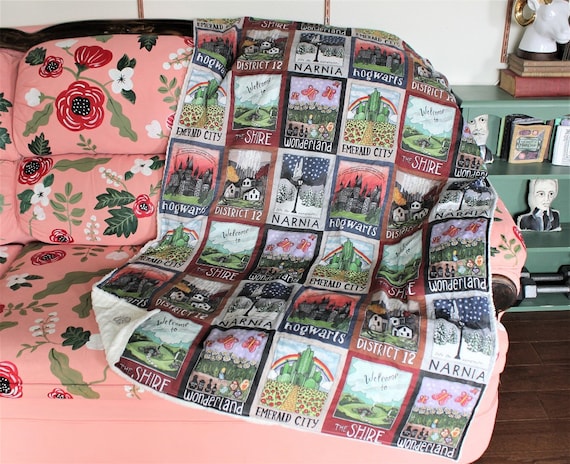Happy happy
Friday! Friday’s always a good day, right? It is in my world anyway, where it
marks the end of my working week and the start of 2 glorious days of weekend.
Today I am extra giddy about it because at 4.30 tomorrow morning (Oh God, so
early, so very early) I shall be heading off on my first ski holiday in 7 whole
years and I am so excited I can barely contain myself. I’ll be taking my
February Book Challenge envelope with me, which makes it all even more exciting.
Anyway,
earlier this month I posted about the rather excellent Christmas present my pal
Sarah got me – the book challenge – and how the first book was Bill Bryson’s One Summer: America 1927
Well, I’ve read it, and I am
taking a quick ten minutes before I go on holiday (I'm going skiing. Did I say?) to jot down my thoughts
about it because that is the point of
the the whole thing, right?
I feel like
I need to bake Sarah a cake or something oh my God, because I really liked this
book. The following information came as a shock to her and so if it comes as a shock to you too then
PLEASE DON’T JUDGE ME: I’ve never read any Bill Bryson before. I’ve picked
up Notes from a Small Island about a
gazillon times, and thought ‘yes, this is a thing I want to read….one day’ but
one day never came because I am all about the novel and there are always so
very many novels I want to read and I wasn’t really sure if travel writing was really my thing and so poor old
Bill remained on my list of authors I might read, eventually.
Until
Christmas Day. & you know what, I was delighted when I opened that book,
because I probably never would have bought it for myself which is crazy,
actually, because it’s a book all about 1920’s America, which, well it has my
name all over it. ALL OVER IT.
So, I read
it, and I loved it and well Bill Bryson, where have you been all my life?
So it is
exactly what it says it is: a book about one summer in America. The
summer of 1927, when Charles Lindbergh flew across the Atlantic and Babe Ruth
broke his home run record; the Mississippi
flooded and Sacco and Vanzetti were executed and Al Capone was at the height
of his success; work started on Mt.
Rushmore and the first talking film went into production and Prohibition was still in effect; production of the
Ford Model T was stopped and a rather insignificant murder trial took a hold of
the whole country and the Federal Reserve made the decision that precipitated
the Wall Street Crash. SO MUCH HAPPENED.
So, what to
tell you? Well for starters I had no clue that
Henry Ford (and to a lesser extent Charles Lindbergh) was such an utter asshat.
Seriously what an absolute cock.
‘He was definitely narrow-minded, barely educated and at least close to functionally illiterate. He did not like bankers, doctors, liquor, tobacco, idleness of any sort, pasteurised milk, Wall Street, overweight people, war, books or reading, J.P Morgan & Co, capital punishment, tall buildings, college graduates, Roman Catholics or Jews.’
It actually
seems like the most adored public figures in 1927 were asshats in one way or
another, which is unfortunate to say the least
but I rather think Henry Ford was the worst of the bunch.
Bryson does an excellent job in this book of highlighting
the extreme bigotry of the time, I mean, we all know how prevalant racism was,
but it was interesting to see how it kept cropping up in the events of that
summer – Lindbergh was racist; Ford a complete and utter hater of Jews,(and
indeed EVERYONE. *insert swear word of
choice here*); supposedly high brow publications published racist slurs
without so much as a batted eyelid; the records for the Mississippi flood tell
the exact number of cows that perished but there’s nothing about the number of
humans because the majority of them were black; and the Ku Klux Klan was
collecting members for fun ‘nothing better captured
the expansive spirit of detestation of the period than the resurgence of the Ku
Klux Klan’ (and they hated everyone ever) It runs throughout the
whole book and is (neatly?) tied up at the end with the terrifying statistic
that batshit crazy eugenics theories led to 60,000 people being sterilised and
sterilisation laws are still hanging around in 20 states TODAY. It’s messed up
but still really interesting to read, you know?
Secondly how the fuck did Prohibition last for 13 years?! Seriously, what?
Thirdly
Babe Ruth and all the baseball stuff, which there’s a lot of. If you’d have asked me in December if I
fancied reading all about the history of baseball I would have laaaaaaughed
because erm , not so much and yet there I was reading this book and actually caring
about the number of people going through the doors of Yankee Stadium and Babe
Ruth’s stats. Also I now really want to watch a baseball game please. Can that
happen?
ALSO the
Sacco and Vanzetti trial. How could the whole entire US police and judicial
system be so utterly incompetent, really. Talk about shocking. THERE WAS NO EVIDENCE. In fact, what evidence there
was probably proved their innocence. And still they were executed. What?
I could go on forever, but this is a long book and I have a holiday to go on and you should read it for yourself anyway. (Sarah, if you're reading this then more of my thoughts will be coming in a letter to you just as soon as I can get them on paper. Keep your eyes peeled for your postie.)
It’s
actually a really fascinating book – Bryson has this way of writing so that
reading ‘One Summer’ was kind of like having a chat with someone that’s really
really passionate about what it is they’re talking about – I couldn’t help but
be swept along by his enthusiasm. I cared about what he cared about and I
wanted every bit of information he had to share with me and then some because
he made it all fascinating. He jumps from topic to topic and back again and he
writes about the people as much as he writes about the events and it’s just
really kind of fun. I’m so pleased I read it.






